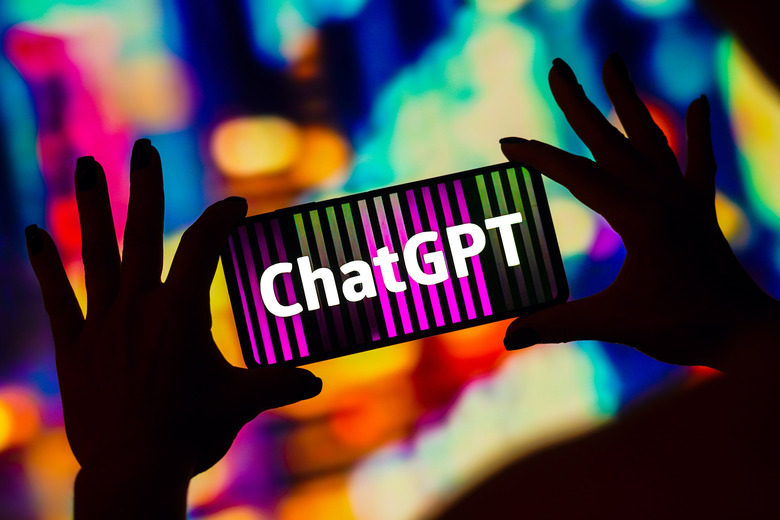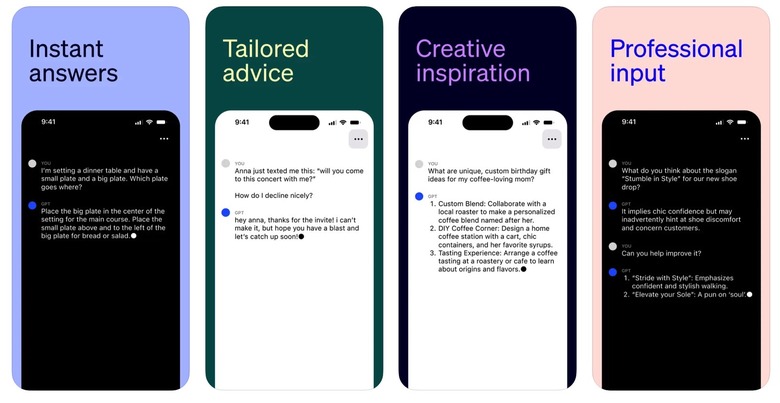2 Reasons Apple's Internal ChatGPT Ban Is Great News For iPhone
OpenAI has finally released the official ChatGPT app for iPhone, which you can download from the App Store in the US right now. That means you no longer have to worry about third-party apps or Safari to get to ChatGPT on your iPhone. But Apple has reportedly issued an internal memo to restrict ChatGPT and other generative AI products for some employees.
While this isn't confirmed, I see two reasons for iPhone users like me to be excited about Apple's decision.
Here's what Apple employees can't do with ChatGPT
According to documentation that The Wall Street Journal saw Apple doesn't want some employees to use third-party generative AI programs as they could send confidential data to the companies that run these services.
Apple also instructed employees not to use the Microsoft Copilot program, which automates the writing of software code.
The problem with ChatGPT and any other generative AI product is that they don't have strong privacy protection. That means the information you use in ChatGPT chats goes back to OpenAI and can be used to train ChatGPT. OpenAI only recently introduced ChatGPT privacy settings to prevent that kind of behavior.
Apple isn't the only company implementing strict generative AI policies. Samsung made a similar move recently after employees posted confidential information on ChatGPT. Similarly, JPMorgan Chase and Verizon have banned ChatGPT, per The Journal. Amazon, meanwhile, urged engineers to use its own internal AI tool to write code rather than ChatGPT.
Why Apple's stance on ChatGPT is exciting
While the report that a company wants to keep its secrets protected and avoid spilling them via generative AI products like ChatGPT might seem boring, there's an exciting detail in it.
The Journal says Apple has restricted ChatGPT and other generative AI use "for some employees as it develops its own similar technology." That's a key detail here and a great reveal that gets somewhat buried in the report.
Only later in the story do we learn that former Googler John Giannandrea is heading Apple's AI efforts. The Journal mentions that Apple had purchased various AI startups in the past without detailing Apple's actual ChatGPT competitor. If there is one.
Also, Apple only wants "some" employees not to use competing generative AI programs. These may be the engineers working on Apple's own ChatGPT-like advancements for the iPhone.
Secondly, the report mentions Tim Cook's recent reaction to AI apps like ChatGPT and Bard. Here's what the CEO said during Apple's most recent calls with investors about the potential of AI:
I do think it's very important to be deliberate and thoughtful in how you approach these things. And there's a number of issues that need to be sorted as is being talked about in a number of different places, but the potential is certainly very interesting.
Having Apple develop its own generative AI program is certainly exciting, and could be exactly what Siri needs. Let's also remember that a report said Apple wants people to code apps for its AR/VR headset via voice, with sounds a lot like using generative AI.
Also, Apple being aware of the various issues with generative AI means it'll take steps to improve user privacy. Getting accuracy right is another matter, however, and it's one that not even Apple might be able to fix.

